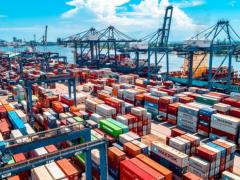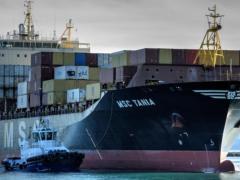There is a strong case for hydrogen-powered long- haul heavy vehicles, according to IDTechEx technology analyst John Li. In response to a July 2025 announcement by automotive group Stellantis that it would discontinue its hydrogen fuel cell technology (FCEV) development programme, Li states that IDTechEx’s analysis predicts that light commercial vehicles are unlikely to be a competitive market for FCEVs. “Unlike heavy-duty vehicles such as trucks and buses, lower charging powers are needed to charge a vehicle. With a daily mileage rarely exceeding 160km, the requirements for light commercial vehicles are easily achieved with battery electric technology.” Sales of fuel cell passenger cars are largely stalled, with IDTechEx predicting a market of approximately 500 000 annual sales by 2045 if major original equipment manufacturers continue to invest in the technology. IDTechEx’s report Fuel Cell Electric Vehicles 2025-2045: Markets, Technologies, Forecasts states: “Zero- emissions trucks continue to be a fast-moving environment, and fuel cell truck companies have been no exception. “Startups Nikola, Quantron, and Hyzon have all encountered significant financial obstacles in the past year, but trucks remain the vehicle segment that IDTechEx believes will eventually experience the most market penetration from FCEVs,” the report points out. “The USA’s National Zero- Emission Freight Corridor Strategy involves the building of a network of hydrogen refuelling stations to support freight transportation by 2040, and China continues to sell thousands of fuel cell trucks yearly, accompanied by a targeted 1 200 hydrogen refuelling stations by the end of 2025. “Trucks with fixed routes mean that refuelling infrastructure can be focused at key hubs and centres.” And according to the report, this, combined with the current limitations of BEVs (battery electric vehicles) in range and weight, means that there is an opportunity in the truck market for FCEVs. “Battery electric trucks currently struggle to meet the harshest demands of heavy-duty, long-haul trucking. “While the total cost of ownership (TCO) remains high for fuel cell trucks, production costs will eventually come down with economies of scale, and refuelling will become more cost-effective once green hydrogen projects are completed and begin producing hydrogen fuel in volume.” Mining giant Anglo American has been using FCEV technology at its mines in Chile and South Africa since 2021. The Chilean operation started with a forklift and a stationary generator, while in South Africa the company started retrofitting the diesel-fuelled Komatsu 930E-4 ultra-class haul trucks at its platinum mine in Mogalakwena. Retrofitting of the world’s largest hydrogen fuel cell vehicles is continuing, according to First Mode, which is doing the conversions. In both cases, green hydrogen is produced on site. ER
Trucks may be hydrogen-powered in future
Comments | 0












